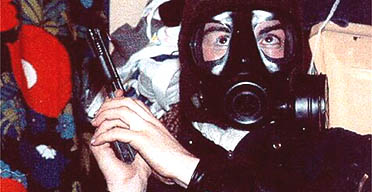Nothing ever changes.
If there's one thing we've learned from previous cases where miscarriages of justice have been exposed, the police tend to fight tooth and nail against any accusations of getting the wrong man, both to defend their original investigation and to protect the officers involved. It's hardly surprising then that both the police and the Crown Prosecution Service aren't even attempting to hide their contempt for the latest appeal being attempted by Barry George and his lawyers against his conviction for murdering Jill Dando.
Again, like with other alleged and proved miscarriages of justice, George is what could be described as an "oddball". When his mental health was examined him prior to his trial, it was found he was suffering from a number of personality disorders, with his defence team suggesting as many as six. Despite the police considering him to be of average intelligence, he was also found to have an IQ of 78. A Grauniad article best summed up his past, littered with obsessions, lies and fantasies, at times demanding to be called Paul Gadd, the real name of Gary Glitter, and later changing his name by deed poll so that he had the same surname as Freddie Merucry, Bulsara. He also posed at times as Mercury's cousin. The article also mentions that for a time George was considered a suspect in the murder of Rachel Nickell, a crime that was initially pinned on Colin Stagg, another man widely accused of being weird, and who endured over a decade of smears and lies in the gutter press after the judge at his trial threw out the prosecution case after it became clear that the only evidence the Met had was gathered using a honeytrap, with a female officer befriending Stagg. The police now believe a man being held indefinitely at Broadmoor was responsible after re-examining forensic evidence.
George's conviction was similarly based on flimsy evidence. The only real prima facie part of the case was that George was found to have a particle of firearms residue discharge found in his pocket, of the same sort of powder as that used in the cartridge of the murder weapon. This has since come under heavy scrutiny because of the possibilities of contamination. In any case, the Forensic Science Service itself now believes that the single speck of FRD is "of no value".
Whilst there have been many other theories as to how and why Jill Dando came to be murdered, the most widely circulated and plausible being a Serbian hitman being responsible, all have been dismissed by the Criminal Cases Review Commission. Apart from the worthlessness of the particle evidence, it has be considered whether George was in any way capable of such an apparently well-planned and executed murder plot. Don Hale, who was instrumental in proving the innocence of Stephen Downing, interviewed George for the Sunday Mirror in 2002, alongside Paddy Hill, one of the "Birmingham Six", found a man overwhelmed by paranoia and living in fear for his own live. To quote Hill's conclusion:
As George returned to our table after wandering off for the umpteenth time Paddy asks: "Is this man capable of planning and killing Jill Dando in cold blood?"
Then he answers his own question: "You wouldn't send him to Tesco," he said.
Labels: Barry George, Jill Dando, miscarriages of justice


